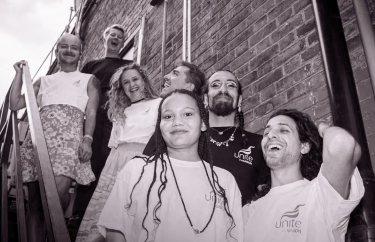

Institutional racism still remains a challenge at work and in wider society
Throughout history, racism and fascism have thrived on poverty, inequality, and uncertainty. You don't have to look too far back into history to know where this leads.
Not just in Britain but across Europe fascist organisations aim to make capital from the current cost of living crisis and political culture wars.
On 22 April 1993, 18-year-old Stephen Lawrence, was racially attacked and murdered by a group of white men.
Four years after the murder, the then Home Secretary, Jack Straw, launched a public inquiry into his death that found the Metropolitan Police to be institutionally racist, and that this had obstructed the arrest and conviction of Stephen’s murderers.
This is what led the TUC to establish its first anti-racism task group – the Stephen Lawrence Task Group – to oversee the work of trade unions to tackle institutional racism.
Institutional racism still remains a challenge
30 years later, institutional racism still remains a challenge at work and in wider society and the trade union movement must continue to call out and challenge racism whenever and wherever it exists but progress is never a straight path and the battle against racism is far from over.
The trade union movement has been a leading voice on the need to tackle institutional racism over the years. However, a new generation of activists has re-energised and heightened the profile of anti-racist campaigning. We know that an increased focus on anti-racism within the trade union movement will have to be both broad and far-reaching in order to make a real and lasting difference in tackling racial disparities and racial injustice at work, as we build a coalition that is capable of reaching out to organisations across wider civil society.
Over the past two years, the new Anti-Racism Task Force has continued important anti-racism work including scrutiny of the trade union movement. And it is abundantly clear that none of our trade unions is exempt from the existence of institutional racism. And both our trade union movement and individual unions still have some way to go to represent Black workers fully.
Since 2020 the ARTF has centred the voice of Black workers through research, conversations, events, roundtable events, activist forums and feedback from all corners of our movement. But now it is time for action.
Unions must take the ARTF manifesto, which they have each signed, and act to implement the recommendations, taking actions that we know will change our unions and our movement. The manifesto sets out how we will refresh, renew and reboot campaigning, organising and bargaining work. And what we need to do to tackle racial inequalities in our workplaces and communities.
And whilst it is true that each union has its unique challenges when addressing racial equality and justice – from the diversity of recruitment, organising, and sector demographics to the priorities placed by their executives, one thing remains clear, for our unions to thrive, recruiting Black members and addressing racism at work must be at the core of trade union activity.
This will grow our movement, make it diverse and truly representative of the working class of modern-day Britain.
On this anniversary of Stephen’s death, the sad truth is this: not enough progress has happened to challenge racism in the last 30 years.
However, the only way to make a change is to learn from the past; root racism out wherever and however it exists and change the cultures that enable it to.
And that means a radical, significant change in our workplaces and in our movement.
Stay Updated
Want to hear about our latest news and blogs?
Sign up now to get it straight to your inbox
More from the TUC




